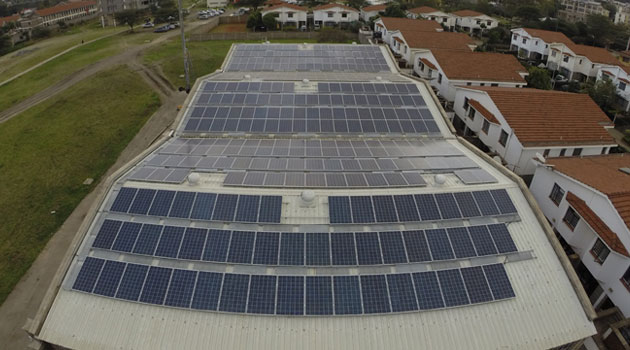Nairobi, KENYA, Feb 19 – The meteoric rise of world coffee prices is creating a stir in the Kenyan industry.
Farmers who had abandoned the crop and new comers to the trade are all scrambling for seedlings from the Coffee Research Foundation (CRF) at Jacaranda in Ruiru.
And as Kenya positions itself to take advantage of the upward trajectory, women farmers now want a piece of the action.
Director of Research at the foundation, Dr Joseph Kimemia says they are working to develop varieties that produce high yields, are disease resistant and produce high quality cherry.
Speaking at the Ruiru Coffee Fair – 2011, Dr Kimemia said: "The research that we do is what gives us an edge. Kenya continues to produce very high quality coffee."
"We develop the methodologies of management in the nursery and subsequently planting on the farms; how to protect against diseases and pests, how to harvest, process and even how to roast," he added.
First time participants at the coffee fair, the International Women\’s Coffee Alliance (IWCA) – Kenya Chapter said they wanted to lobby for women to begin playing a bigger role in coffee co-operatives.
IWCA official, Wangari Kabiru said: "Women produce most of the coffee grown in the country but their contribution to the industry has always been downplayed."
"While most smallholdings are owned by men, women play a crucial role in mobilising farm workers, participating in the actual coffee picking, weeding and tending to the coffee bushes," Ms Kabiru explained.
If a woman is not a shareholder, said Ms Kabiru, she cannot even go for an elective position in a society and shareholding is tied to the ownership of land.
IWCA-Kenya Chapter also wants to lobby for co-operative societies to enforce the rule in the Constitution that says that a third of the leadership position should be taken by women.
"Men do not want to recognise that women also have leadership qualities and since there\’s a lot of corruption within the co-operative societies, women do not get the money trickling back to them," she charges.
Being involved in decision-making means that women can also decide how the money is spent at the co-operatives level down to the household.
Ms Kabiru said the women\’s alliance also wanted to expose women to coffee events locally and internationally.
"So we will find sponsorship, we will fundraise and finance them to travel and visit to see what other women have been able to do in the coffee industry," she said.
Dr Kimemia said CRF would like to see farmers working towards increasing their yields per bush.
"My slogan for them is double your effort; is you\’ve got two kilos go to four kilos. On our part as researchers we have moved ahead and last year we were able to release a new variety of coffee by the name Batian," he explained.
This variety is very high yielding and it has excellent cup quality said the researcher.
"Currently, the demand for Batian is very high and we\’re seeing that it\’s going to help provide the opportunity for coffee to reclaim its original place in terms of foreign currency earnings for this country. The future is bright for coffee but only for the farmers producing high quality coffees," espoused Dr Kimemia.
From the perspective of Osborne Mahinda, a coffee farmer, their work is to produce but they need somebody to look out for them in terms of the price they get.
"I\’m happy the coffee prices are good, but the management of co-operatives needs to be improved and farmer education needs to be constant," said the farmer.
"What has happened in coffee is that over the years is that we\’ve just recycled the same knowledge; it\’s the way my dad did it. It\’s the way my grandfather did it. So I think the youth should not leave the old people to continue running the coffee. Let the young people come in after all; coffee that educated us," added Mr Mahinda.
Dr Kimemia was however quick to clarify that coffee can either be sold at the Nairobi Coffee Exchange or traded directly and farmers have the liberty to choose how their coffee is sold.
"What the farmer delivers is cherry and that cannot be compared with the prices of coffee in supermarkets locally and abroad. Farmers have been paid up to Sh80 per kilogram of cherry; that\’s the equivalent of US$1. Generally the break-even point for coffee is Sh15 per kilo of cherry, anything above this in terms of farming, you are making profit," he added.
For farmers to retain their markets they have to sustain their productivity and quality said Dr Kimemia.
https://twitter.com/WJWaweru
http://www.youtube.com/watch?v=Cw9fqdP9rGI

























